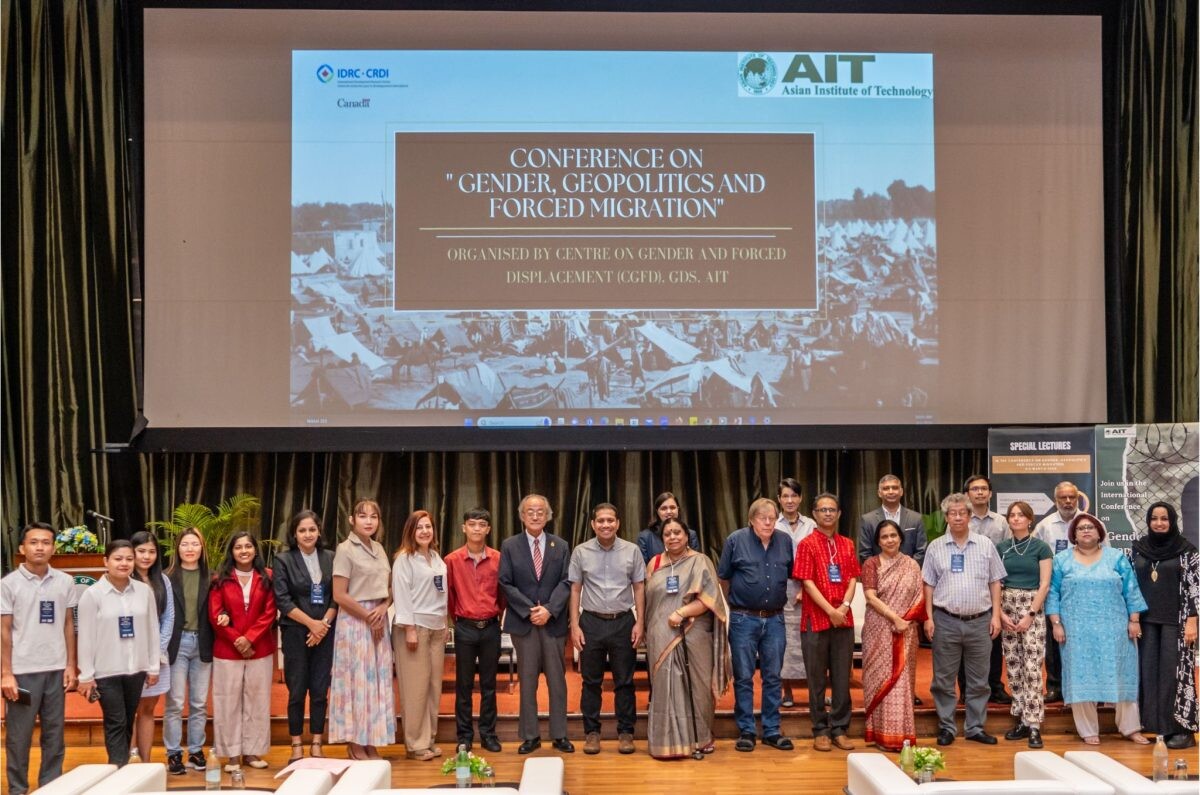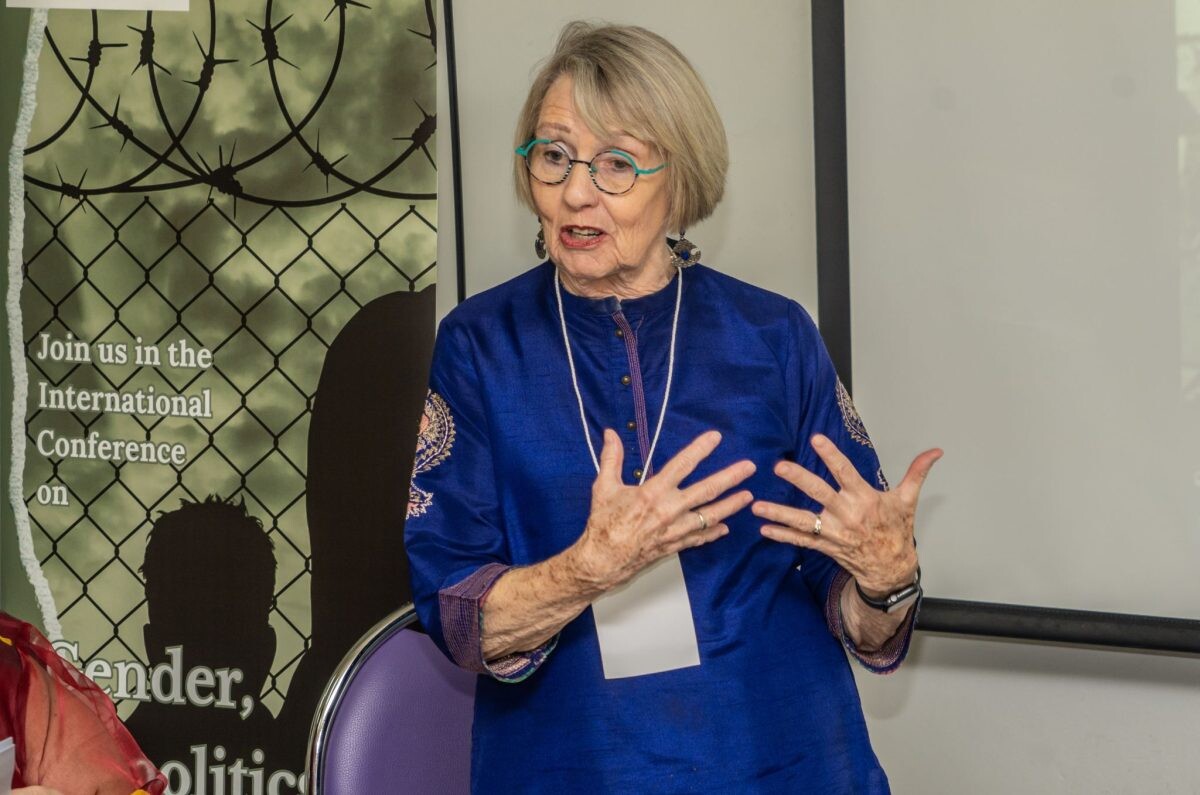Experts Discuss Gender, Geopolitics, and Displacement in Observance of Women's Month at AIT's International Conference
In a significant event marking International Women's Month 2024, the Center on Gender and Forced Displacement (CGFD) at the Asian Institute of Technology organized a two-day International Conference on "Gender, Geopolitics, and Forced Migration" on March 4th and 5th. Aimed at inspiring inclusion and promoting gender equality, the conference underscored the importance of a gender-sensitive approach in geopolitics, influencing international relations, foreign policy-making, and national politics.

Adopting feminist perspectives on war, conflicts, displacements, migration, and peace, the conference set forth three primary objectives: to investigate gendered assumptions in the study of forced migration, examine the implications of militarized notions of territorial citizenship and explore the practical everyday implications of geopolitics and biopolitics on the causes and consequences of displacements.
Prof. Kazuo Yamamoto, AIT President, reaffirmed the institute's unwavering dedication to tackling pressing issues. He highlighted AIT's over two-decades-long collaboration with Canada's International Development Research Center (IDRC), emphasizing its substantial contributions, particularly in the Gender and Development Studies program. "The IDRC-funded CGFD has played an instrumental role in advancing knowledge and leadership on forced displacement. This international conference serves as a platform for experts from various backgrounds to dissect the intersections of geopolitics, gender, and forced migration, fostering pivotal insights for addressing the challenges faced by displaced communities, especially in South and Southeast Asia," he added.
Prof. Paula Banerjee, IDRC Endowed Research Chair and Director of the CGFD reflected on the pandemic's lesson on global interconnectedness and the pressing need to unite for progress. She emphasized the shift from focusing solely on climate change to addressing ongoing conflicts and displacement, advocating for new solutions, and a collective effort to challenge norms and build a better future.
Mr. Edgard Rodriguez, Lead (Myanmar) at the International Development Research Centre (IDRC), highlighted the cross-border nature of geopolitics and displacement, calling for a shared responsibility to alleviate suffering. He stressed the importance of the conference discussions in finding practical solutions and steering towards positive change, expressing confidence in the collective effort of IDRC and AIT teams to ensure a brighter, more secure future.
The conference addressed critical issues, such as the impact of geopolitics on vulnerable populations, particularly women's marginalization, and the potential for geopolitics to address the situations of Afghans, Rohingyas, and Palestinians from a gender perspective. It also examined the broader effects of geopolitics on private domains and the consequences of toxic geopolitics and noxious masculinity on internally displaced persons (IDPs) and the Stateless, questioning the feasibility of achieving peace and security without gender sensitivities.
Featuring special lectures on myriad aspects of geopolitics, gender and forced migration and four panels on diverse topics, including internal displacements, citizenship, statelessness, and regional forced displacements, the conference brought together internationally renowned scholars, UN body members, civil society representatives, and students. It concluded with a powerful call to action for participants to challenge norms, foster inclusion, and work toward gender equality in the intricate nexus of geopolitics, gender, and forced migration.

ติดต่อเราได้ที่ facebook.com/newswit